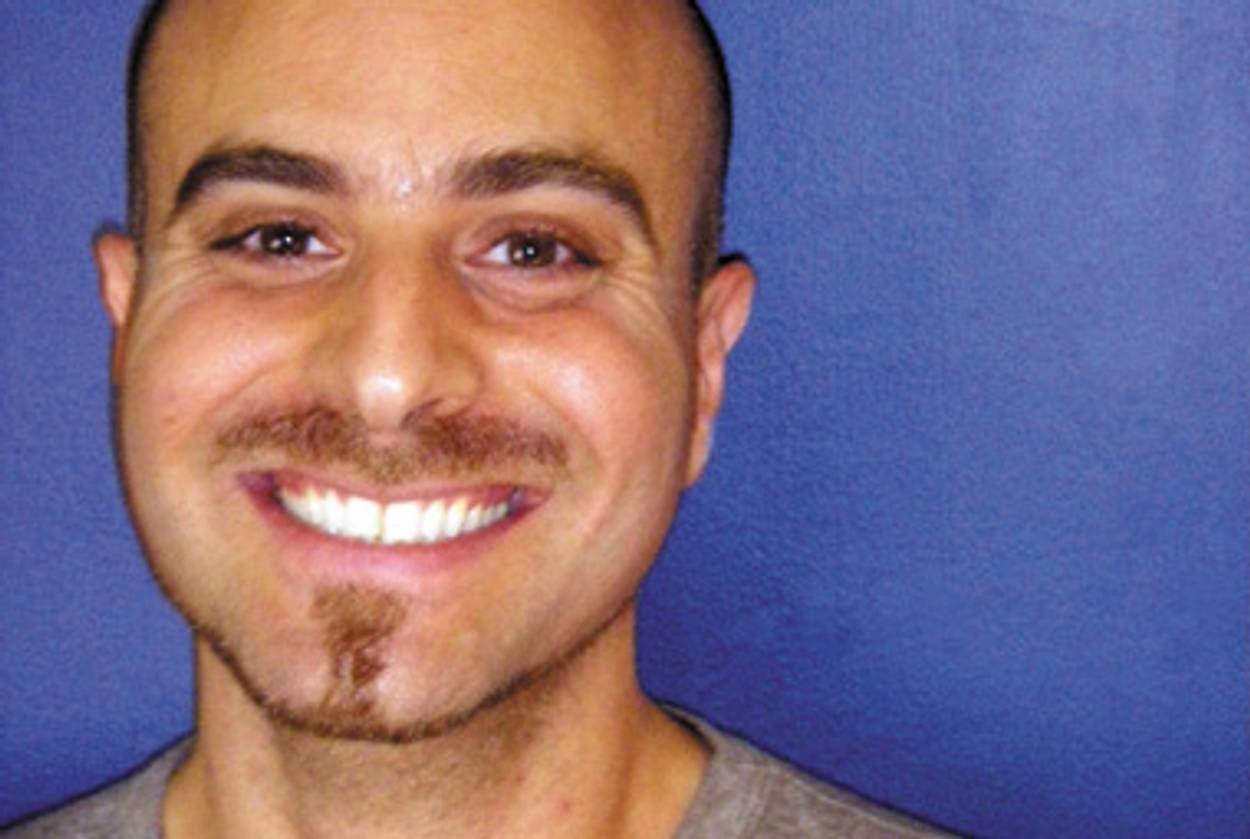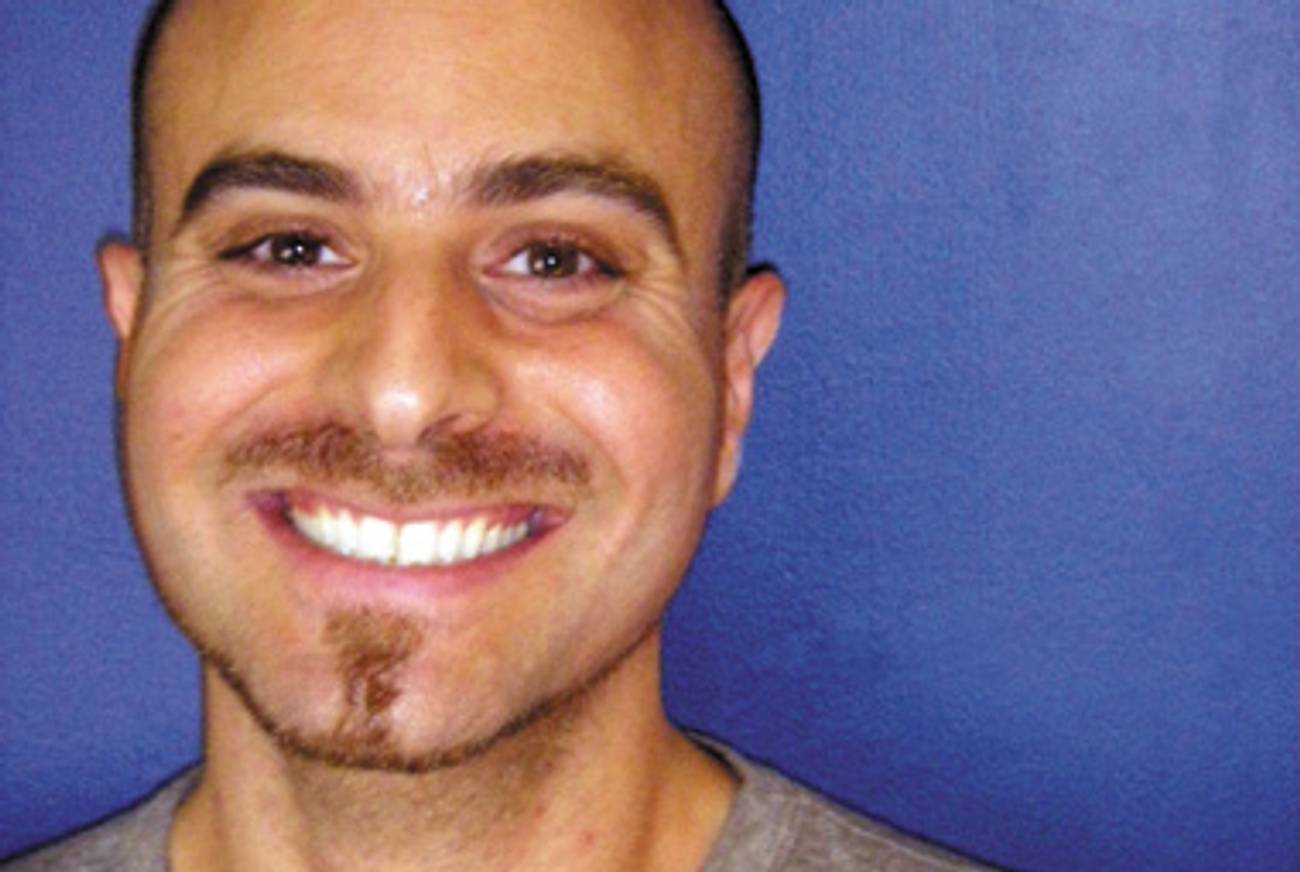The Damascus Affair
Playwright David Adjmi’s love-hate relationship with his Syrian Jewish roots




The Syrian Jewish community of Midwood, Brooklyn is famously insular, conservative, and colorful—in other words, ripe for theatrical adaptation. Playwright David Adjmi—hardly a good old boy of the community, he dropped out of yeshiva and later fled to Sarah Lawrence College, where he came out as gay—takes advantage of this in a new play, Stunning, which recently premiered in New York after a short run last year in Washington, D.C.
At the play’s satiric center is Lily, a married 16-year-old yeshiva dropout. A whiny naif bullied by her sister and husband, Lily hires a maid to clean her spotless white house while she eats candy on the sofa. The maid, Blanche, a black lesbian would-be academic who spouts Roland Barthes and brags of affairs with prominent intellectuals. Under her tutelage, Lily begins fitfully to mature—not least by starting to figure out the baffling contradictions of her community. In one of the play’s funniest scenes, she announces at the dinner table her discovery that Syrian Jews hail from, well, the Middle East. Her sister replies, “We’re not Arabs, ass face.”
Adjmi, 36, spoke with Tablet about his own youthful bafflement and what he understands now about where he grew up.
One thing you captured especially well about the Syrian Jewish community was this combination of traditionalism and trashiness.
Yeah. And elegance, too. It’s nouveau riche. It’s totally a common phenomenon.
How do those elements interact within the community? Is there any conflict between them?
I was just incredibly confused growing up. And that was right at the nexus of it…. When my parents got married, they moved to Nashville, and they had three kids. They were, like, southern Jews, very assimilated, they developed their southern accents and stuff. They moved back to Brooklyn when their kids were of marriageable age. And then, I was born—and I was basically, like, the designated Jew. They sent me to the Yeshiva of Flatbush but they weren’t quite religious themselves. At school there were Sephardic Jews and also very religious kids, children of rabbis and stuff like that. And my parents didn’t explain to me what I was doing there. So it felt like a kind of theater to me. And I thought, well, I’ll just mimic what everyone else is doing and figure it out, but I couldn’t figure it out because the values felt so much in contradiction. I thought you were supposed to follow this carapace of coolness: nice clothes, money, and all that stuff, and then pay a kind of … token attention to religiosity. I kept trying to figure out what the logic was to the rules. And I never could figure it out. And then after a while I got very cynical.
Another seeming contradiction that the play highlighted was that Lily and her cohorts barely seem to know they’re Middle Eastern. My understanding was that, within the Syrian community, you were strictly ordered to marry another Syrian Jew.
Lily’s me. I never thought of myself as Middle Eastern, even though I knew I was. I guess it’s really that I never thought of myself as an Other. I was raised to believe that I was in the center and that my identity would be based on exclusion. So I knew I was Syrian but it felt like that was code for “really awesome.” It didn’t mean Middle Eastern, like, from the Middle East. When I looked in the mirror I didn’t see someone Middle Eastern, I just saw, white…. No one really discussed where people were from. The other funny thing is, Syrian is kind of like a catchall for Middle Eastern Jews—Turkey, Lebanon, Syria. We’re mutts.
My reading of Blanche was that she represented another layer of satire, a parody of the kind of people who read literary theory. How much were the books she read supposed to be empty signifiers, and how much they were actually representing themselves as texts?
Are you saying, am I parodying intellectualism and intellectuals? Absolutely. I went to Sarah Lawrence and I did study all this stuff. On the one hand I think it was just an imprimateur and this cache that you had, again this exclusionary way of forming an identity. [For Blanche], I think the performance of it is one thing—it’s all about, “I’m going to put on a show, I’m going to perform an identity.” But it’s not just that. That’s not her only discourse. I think she’s trying [with these books] to master the signifiers. All these people are trying to master the codes and the signifiers.
How was race handled in Midwood?
I’m not going to lie to you—there was an enormous amount of racism in my immediate family, and at school. There was one girl who was African American in the yeshiva … she didn’t last very long. If you were Sephardic you thought you were better, you had nicer clothes and pleats in your pants or whatever. If you were Ashkenazic you came from a more solid family, you were going to college, you weren’t hip in that way, maybe, but you didn’t need it, you were more grounded. I started out in the Honors classes and by the time I left I was in the dumb class. It was all Sephardic Jews. It was sort of horrible. And eventually I just left, I dropped out of school my junior year.
Were you out to anyone there?
God, no. It was incredibly homophobic. It’s really hard when there are no models for it. The only gay Sephardic Jew was I guess Isaac Mizrahi, he’s a Syrian Jew who also went to Yeshiva of Flatbush. And he dropped out. But I don’t even know if he was famous yet when I was there. And that was it. I remember when I was in high school I thought, I can just like fix it; I was seeing a therapist who was like, “You can fix yourself.” So I was like, okay, I’ll just do it, I’ll move to Ocean Parkway, I’ll work in an electronics shop, I’ll have kids and somehow just make it work. Until eventually it was like, it’s not going to happen…. I always felt so invisible and just not part of a discourse.
There’s kind of a lack of discourse, or at least a lack of popular representations, of Middle Eastern Jewish immigrants in general.
I didn’t want it to look like a Neil Simon play or a Woody Allen movie. The look of it is much more European. My aunt and uncle were like, “Why don’t you write about me?” And I was like, “God, I’ll never write about you, we’ve seen it.” I want people to be alienated from their experience of Judaism, or of Brooklyn Jews.
Sephardic Jews are trying to fulfill the American Dream—they want to go out and make a lot of money. It’s not an anomaly. It’s not so weird, ultimately. There’s something very innocent and transparent about it. You look at the houses in Midwood—now they all have to be Spanish-style villas. I think there’s something beautiful about it, and something tender. You can point to the Syrian community and say, “Uch, they’re all kind of vulgar and crude.” Well, we’re all kind of vulgar and crude, sometimes.
Marissa Brostoff, a doctoral student in English at the CUNY Graduate Center, is a former staff writer at Tablet and the Forward.
Ari M. Brostoff is Culture Editor at Jewish Currents.